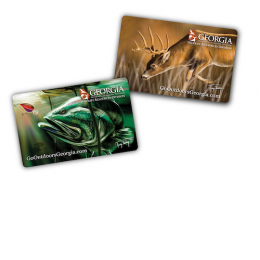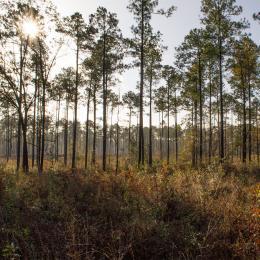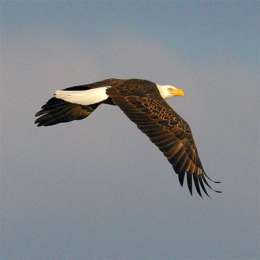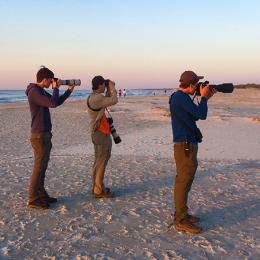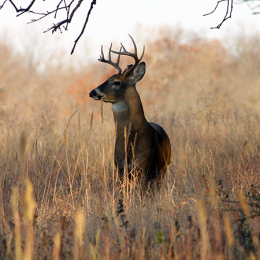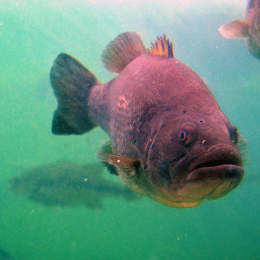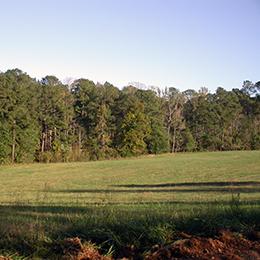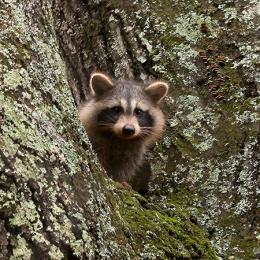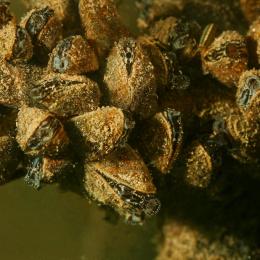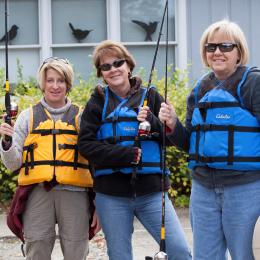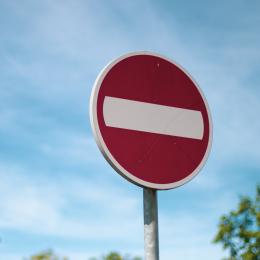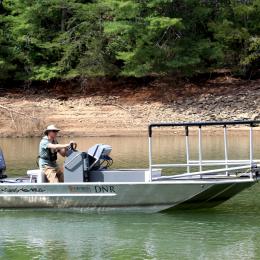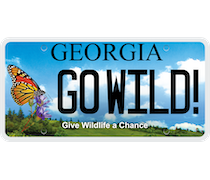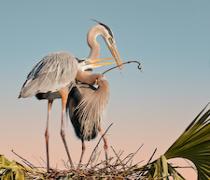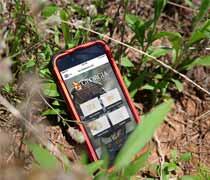
SSPPS 2019 Sessions
TUESDAY 10TH
The Big Bang Program Theory
Speaker Information: Amy Waite is a career environmental educator and interpreter who began her outdoor education riding horses through South Georgia longleaf pines and fishing in farm ponds banked with red clay. She knew she wanted to study Biology and initially thought it would involve lions and elephants. African wildlife eluded her, but enthusiasm for the environment and its inhabitants did not. Able to move through different public and private educational facilities, Amy gleaned fascinating ideas and teaching concepts from great presenters all over the country and offers a diverse collection of program concepts. She has a very supportive husband who is a signer for the deaf and two college-aged daughters who continue to tag along on unusual adventures. She loves to read classics and has always been grateful to Pure Prairie League for writing and playing their classic song just for her.
Description: Creating effective and simple programs does not have to be a catastrophic undertaking. Someone else, somewhere else has already devised a program concept with complete trimmings you can borrow and tweak to fit a presentation perfect for your site. From night adventures to self-guided discoveries this session will highlight low-budget, self-guided, volunteer-led and insightfully simple program ideas. Sharing is encouraged and resources will be provided.
WRITE ON!
Speaker Information: Sean Higgins steers the interpretation and education ship at North Carolina State Parks, which he has done as program manager for the past 12 years. Between supporting staff, advocating for visitors, and filing paperwork, Sean still finds time to return to his roots by leading paddle trips and improving exhibit text. As an interpretive designer in North Carolina State Parks, Tim Rayworth works with field staff to help visitors find meaningful connections to their parks through waysides, exhibits, and interpretive media. Tim shifted to using images and the written word after 15 years of front-line interpretation and environmental education.
Description: “Words are, of course, the most powerful drug used by mankind.” ― Rudyard Kipling. We know these two things to be true: 1) words are important, and 2) our parks are awesome. Interpretive writing is a tool that allows us to address both of these truths and also to administer that other powerful medicine: sense of place. In this workshop we will share philosophy and tips on writing for interpretive media, examine the process of one sign-writing project, and survey signs from around North Carolina. Bring examples of inspiring interpretive writing that you have found, and we will celebrate the awesomeness of our places through words together.
Diversity, Equity, and Inclusion on America’s Public Lands
A beginner’s discussion on systematic issues and mapping a path forward.
Speaker Information: Christen Miller is a native of Texas and came to Virginia via Louisiana. She is an artist, mother, wife, naturalist, Reiki master, and lover of history and nature, and all of these things influence and enhance her role as a Park Ranger. She is a certified canoe instructor, interpretive guide trainer, Project Learning Tree facilitator and Virginia Master Naturalist, and has been trained in historic weapons, nature immersion, and diversity, equity, and inclusion in environmental education.
Description: Parks were created for all – but that “all” has changed since many of our park systems were first established. In this session we will examine what “all” means in 21st century America, what roadblocks are still in place for people of color, those that are differently abled, or those marginalized based on gender, gender identify, or sexuality. Together we will explore what diversity, equity, and inclusion means, and how we can map a path to social justice.
WEDNESDAY 11TH
Junior Ranger Book Project
Speaker Information: Valarie Ikhwan has worked for Georgia State Parks since 2012 as a naturalist, assistant park manager, and now historic site manager. Valarie has a BA in History and she has a passion for interpretation, and cultural resource preservation. In her free time, you will find her biking the coastal islands, knitting, or reading.
Description: Five years ago, leaders of the Georgia State Parks interpretive unit got together and decided that the statewide junior ranger program needed a total overhaul, as it was 20 years old. These folks gathered a team, secured funding, and began a multi-year, multi-component, multi-vendor project. 2019 marks the inauguration of the totally redesigned junior ranger program. This presentation from the book designer and one of the State Park leaders that helped with the process. It will detail the core values of the Junior Ranger Project, the goals, lessons learned, and update on how it’s going.
Podcasting Our Parks
Speaker Information: Crystal Lloyd is the advanced ranger at Holly Point Campground in Falls Lake State Recreation Area in Wake Forest, North Carolina. She began her career with North Carolina State Parks when she was just 16 years old, serving in a summer seasonal position. She earned her Bachelor’s Degree in Parks, Recreation, and Tourism Management from NC State University, and has now served as a Park Ranger for North Carolina State Parks for 8 years.
Ranger Jess is the advanced ranger at William B. Umstead State Park in Raleigh, North Carolina. She has a Master’s Degree in Parks, Recreation and Tourism Management from NC State University, and served as a Marine before joining the North Carolina State Parks system.
Description: Hosts of the Ask a Ranger Podcast for NC State Parks, Crystal Lloyd and Ranger Jess are just starting our 3rd season of episodes. Over the last few seasons, they have continued to grow their listener base from outside of NC to all over the world. Their show covers a wide range of topics from what exactly a park ranger does to the Megalodon Shark. Ranger Jess came up with the podcast idea as a way to reach people who lack the means, time, or resources to always be in the natural world. Using the podcast as a form of interpretation allows them to reach more people than they could on just a normal weekend program at parks. During this session, they will be sharing their experiences, good and bad, in hopes that more agencies can use the tools of podcasting and social media to broaden the audience we reach.
Uncovering your Park's Essential Experience
Speaker Information: Richard Julian is the Interpretative Programs Manager with Delaware State Park’s Cape Henlopen State Park Nature Center. With a background in ecology and conservation biology, he has passionately engaged audiences in environmental education and interpretation.
Sean Carrow is the Interpretive Programs Manager of the Fort Miles Museum and Historical Area at Cape Henlopen State Park. His background consists of animation and living history, which has been a great combination for the site. This dynamic duo connects visitors to Cape Henlopen’s essential experience. BOOM!
Description: What makes your park special? In most cases, it involves the interaction between humans and the ecology. In this session, we review a program that engages participants to investigate Cape Henlopen State Park’s landscape. We will explore the military history and its ecological impact that shapes the park’s current landscape. Following a brief historical overview and crash course in plant identification, participants will use their powers of observation to uncover the changes in the ecological landscape of Cape Henlopen State Park. We will conclude by going over how to uncover the ecological/human history of your own park and ideas to connect visitors to its essential experience.
THURSDAY 12TH
It's Not Just Another Stinky Sock - Puppets
Speaker Information: Keith D. Bailey serves the Parks Recreation and Historic Sites Division of Georgia’s DNR, as the Interpretive Ranger of Etowah Indian Mounds State Historic Site. As a youth, he spent a lot of time outdoors with both youth groups and family. After graduating High school, he received an Associate’s Degree in Fine Arts at Rienhardt College. His interests in nature, history, and tinkering have led him to explore a variety of hobbies, including blacksmithing and genealogy. For several years he was self-employed, worked his grandmother’s farm, and homeschooled his oldest child. He spent several years volunteering, notably with Friends of Georgia State Parks and with scouting as an adult leader. Returning to school after the economic crunch, he graduated Magna Cum Laude from Georgia State University, with a B.A. in Anthropology.
Description: This session will focus on learning how to make a simple sock puppet and writing a script for a short puppet skit using the precepts of relevance, relatability, conceptualization, imagination, and being educational. Puppets and Puppet shows can be fun, useful, and educational programming tools to help guests, young and old alike, appreciate the nature, history, and culture that is specifically relevant to your park or historic site. They can help capture the imagination of guests as they conceptualize how to tell their own stories or share ideas with others using puppets. Puppets can also help bring a sense of relatability to ideas or information being presented in a show.
Partnering for Protecting your Natural Resources
Speaker Information: Growing up in the South Carolina Lowcountry, Mike spent his summers traveling with his family through state and national parks across the country in a makeshift camper, a school bus they bought at an auction. Those road trips would later inspire the direction of his career. While earning his degree in Marine Biology at USC, Mike worked summers as a sea turtle conservationist. This experience led to a job offer at Hunting Island State Park, and a career with the SC State Park Service. While at Hunting Island, he even got a little acting experience playing the role of Ranger Mike on the Nickelodeon TV series “Gullah Gullah Island.” Now back at Huntington Beach, he manages the interpretive programs and natural resources for the park, in addition to working on exhibit plans for the new Nature Center to be re-built this year.
Description: Protecting your park’s natural resources can be a difficult task, but especially challenging when budgets are tight, visitation is high, and demands are many. Huntington Beach State Park in the Grand Strand region of South Carolina has been able to establish a diverse range of natural resource management projects by building equally diverse partnerships ranging from fellow state and federal agencies, to Friends groups, non-profits, clubs, schools, and more! Oyster reef and wetland restoration, sea turtle and shorebird nest protection, endangered plant reintroduction, and pollinator gardens are just some of the projects that have succeeded by actively engaging our partners, visitors and especially, our local school students in innovative ways.
STEM like a Girl
Speaker Information: Sam Dixon is a Park Ranger at Deep Creek Lake State Park in the mountains of Western Maryland. Growing up she was heavily influenced by attending interpretive programming in Maryland State Parks during her summer visits from Pittsburgh, Pennsylvania. After moving to Maryland and earning her degree in Natural Resources she began working as a seasonal interpreter for the Maryland Park Service. Everything came full circle in 2018 when Sam was hired as a Ranger in the park that inspired her love of the outdoors as a child. Some of her favorite aspects of the job are education and outreach in her community and working with the captive raptors in the park’s aviary. When Sam is not at work she is most likely birding or practicing her photography skills.
Description: What does it mean to do something “like a girl”? In this session we will talk about answering that question through the celebration of women in the STEM field. Every year Maryland’s Deep Creek Lake State Park uses Women’s History Month as a platform to showcase the accomplishments and stories of many of the women that have problem solved, trailblazed, and changed the world “like a girl”. We will talk about ways to create a hands on learning experience for your park visitors through experiments and activities while introducing them to some of the leading women in the Science, Technology, Engineering, and Math fields just in time to celebrate the centennial of Women’s Suffrage in 2020. And to answer the number one question surrounding this event every year…No, you do not have to be a girl to join in the celebration.




